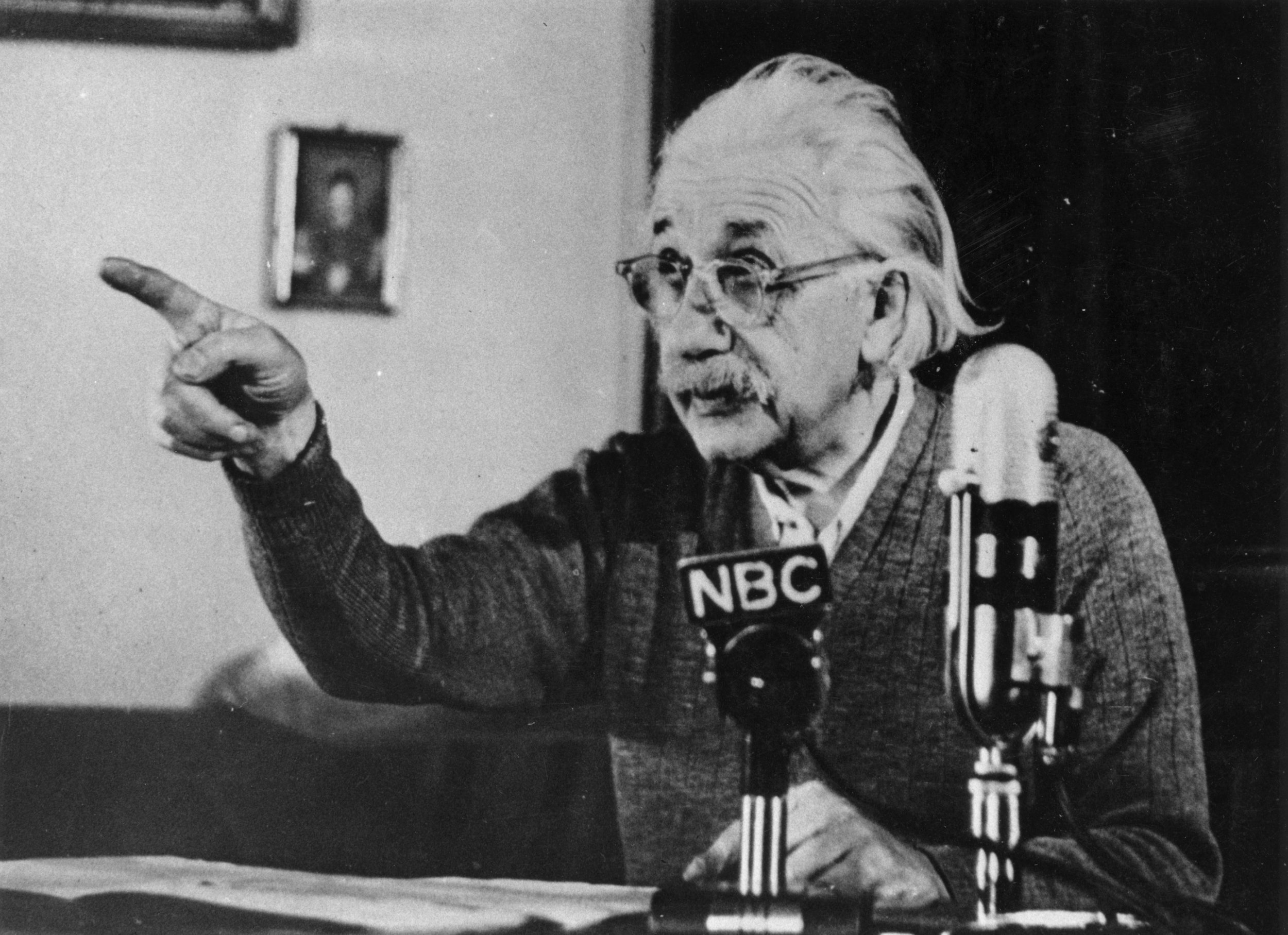
Albert Einstein's so-called "god letter" is set to be auctioned today, with experts estimating it will sell for up to $1.5 million.
The handwritten one-and-a-half page letter was written in 1954, and details some of the genius's musings on the existence of god and the nature of world religions. It will be auctioned by Christie's in New York, the BBC reported.
In the letter, written in German and sent to philosopher Eric Gutkind, Einstein explains, "The word God is for me nothing more than the expression and product of human weaknesses, the Bible a collection of honorable, but still primitive, legends which are nevertheless pretty childish."
Einstein, a German Jew who was 74 years old when the letter was written, also describes his frustration with Judaism. "For me the Jewish religion like all others is an incarnation of the most childish superstitions," he wrote.
"And the Jewish people to whom I gladly belong and with whose mentality I have a deep affinity have no different quality for me than all other people," Einstein continued. "As far as my experience goes, they are no better than other human groups, although they are protected from the worst cancers by a lack of power. Otherwise I cannot see anything 'chosen' about them."
According to The Guardian, Einstein wrote to Gutkind in response to his book titled, Choose Life: The Biblical Call to Revolt. In it, Gutkind proposed a reinterpretation of traditional Judaism. Gutkind sent Einstein a copy of the work in 1954.
The letter remained among Gutkind's papers until it came up for auction in London in 2008—43 years after the philosopher died. The bidding for the letter ended at £170,000 ($217,000), with evolutionary biologist Richard Dawkins among the beaten bidders. After the bid, Dawkins said, "This letter was about something very important to Einstein I suspect."
The letter has thus been cited as evidence of Einstein's atheism, but at other points in his life the famous mathematician himself dismissed the label.
According to a 1996 biography—Einstein: A Life—he was an extremely religious child, but by age 13 had "abandoned his uncritical religious fervour, feeling he had been deceived into believing lies," The Guardian explained.
Nonetheless, he retained belief in a higher power, the biography explained. Einstein said he believed in "Spinoza's God"—that proposed by Baruch Spinoza, a 17th-century Dutch philosopher. This god "reveals himself in the lawful harmony of the world, not in a God who concerns himself with the fate and the doings of mankind."
Einstein also went on record to criticize "fanatical atheists whose intolerance is of the same kind as the intolerance of the religious fanatics."
Uncommon Knowledge
Newsweek is committed to challenging conventional wisdom and finding connections in the search for common ground.
Newsweek is committed to challenging conventional wisdom and finding connections in the search for common ground.
About the writer
David Brennan is Newsweek's Diplomatic Correspondent covering world politics and conflicts from London with a focus on NATO, the European ... Read more
To read how Newsweek uses AI as a newsroom tool, Click here.








